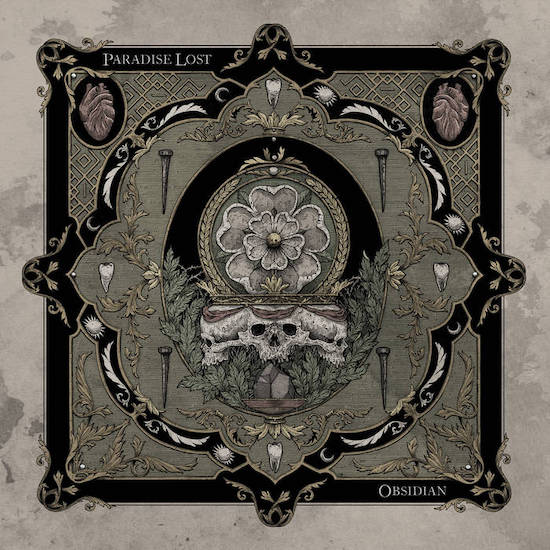Venerable misers Paradise Lost have embraced their goth roots on new offering Obsidian. With a prejudice towards gloomy embellishment, they sound more sepulchral than they have in years.
Obsidian is firmly written in the death-doom tradition, a mature and considered album from a band very clearly sixteen albums into their career. Much busier than 2017’s Medusa, they’re just as polished but lean towards longer, more involved tracks than single cuts. Darker and gloomier, Obsidian is notably peppered with string embellishments and choral undertones that flesh out their goth influences.
Taking some cues from recent releases, their modern, healthy production helps to give these ideas a crisp edge, in contrast to their earlier, murkier offerings. Their dour style lends itself well to a peppering of the theatrical, adding just a taste of pomp to a throaty metal record. A strength for them has always been their vitality, and whilst nothing here is especially pacy it does, by virtue of the warm, rich bass and drums, drive the tracks a little harder than their peers.
Another familiar strength is that they live for the drama, which they deliver here: the repeated refrain of "we’re all alone" from ‘Fall From Grace’ is an early example, used to hammer home the relentless misery. Vocalist Nick Holmes is a particular standout here, his voice richer and raspier than before without straining for the harsher moments; he’s clearly picked something up from his duties with Bloodbath, back on familiar territory now.
The melodrama is echoed in the wail of the guitars, which pack a surprising momentum; Paradise Lost have often leant into this, which compares favourably to acts such as My Dying Bride, who wallow in misery. Here, you’ll find a more focussed version of mournful doom, no less emotive for its precision.
Happily, even in their later years Paradise Lost sound hoary and venerable rather than wizened or dilapidated. Fittingly, where Medusa felt like it had a number of cuts which would slot nicely into a festival setlist, this is very much more involved; for a year with no festivals, now is a good time to dig deep into studio albums.


